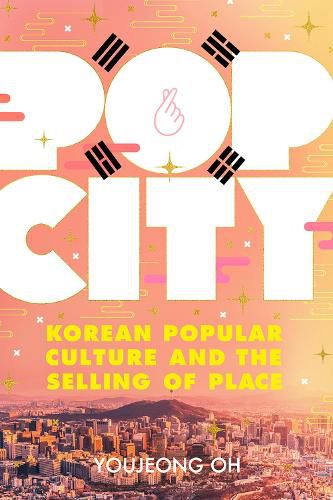Readings Newsletter
Become a Readings Member to make your shopping experience even easier.
Sign in or sign up for free!
You’re not far away from qualifying for FREE standard shipping within Australia
You’ve qualified for FREE standard shipping within Australia
The cart is loading…






Pop City examines the use of Korean television dramas and K-pop music to promote urban and rural places in South Korea. Building on the phenomenon of Korean pop culture, Youjeong Oh argues that pop culture-featured place selling mediates two separate domains: political decentralization and the globalization of Korean popular culture.
By analyzing the process of culture-featured place marketing, Pop City shows that urban spaces are produced and sold just like TV dramas and pop idols by promoting spectacular images rather than substantial physical and cultural qualities. Oh demonstrates how the speculative, image-based, and consumer-exploitive nature of popular culture shapes the commodification of urban space and ultimately argues that pop culture-mediated place promotion entails the domination of urban space by capital in more sophisticated and fetishized ways.
$9.00 standard shipping within Australia
FREE standard shipping within Australia for orders over $100.00
Express & International shipping calculated at checkout
Pop City examines the use of Korean television dramas and K-pop music to promote urban and rural places in South Korea. Building on the phenomenon of Korean pop culture, Youjeong Oh argues that pop culture-featured place selling mediates two separate domains: political decentralization and the globalization of Korean popular culture.
By analyzing the process of culture-featured place marketing, Pop City shows that urban spaces are produced and sold just like TV dramas and pop idols by promoting spectacular images rather than substantial physical and cultural qualities. Oh demonstrates how the speculative, image-based, and consumer-exploitive nature of popular culture shapes the commodification of urban space and ultimately argues that pop culture-mediated place promotion entails the domination of urban space by capital in more sophisticated and fetishized ways.